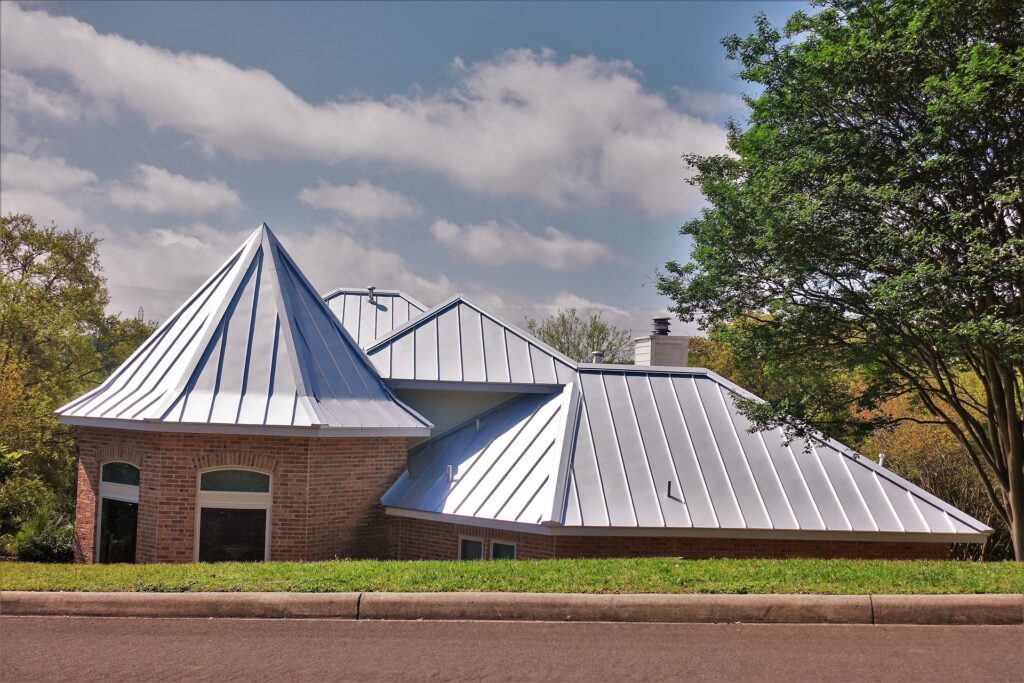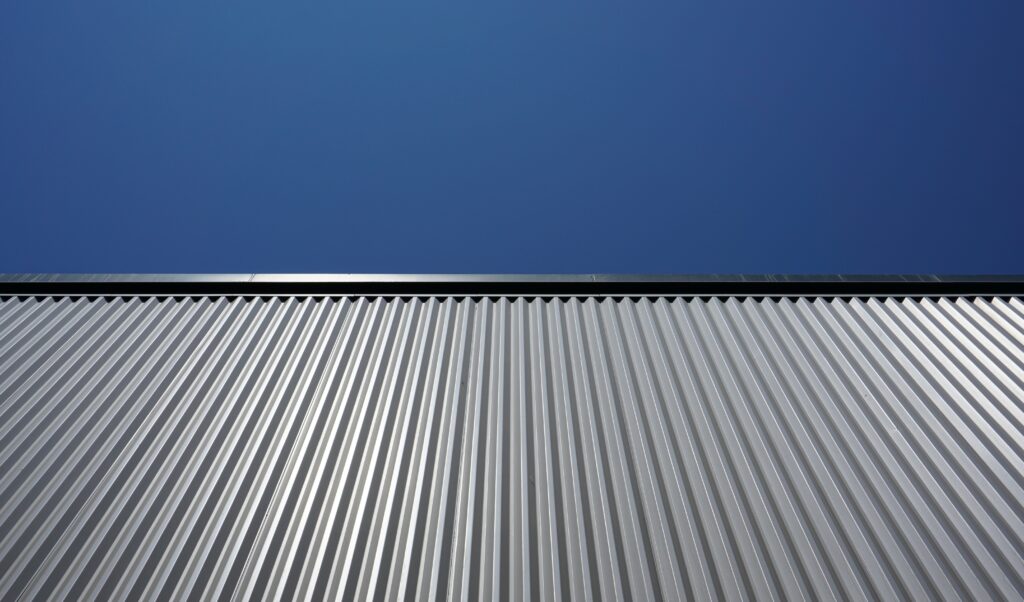Looking For a Professional Metal Roofing Contractor in Montrose, Colorado?
We proudly serve all of Montrose County as Montrose, Colorado’s premier roofing company.
Weighing the Benefits and Drawbacks of Metal Roofing for Commercial Buildings
The decision to install metal roofing on a commercial building can be a daunting one for business owners. Metal roofing can be a great choice for many businesses, as it offers an array of benefits, such as durability, longevity, and energy efficiency. However, there are also some drawbacks to consider, such as cost and noise. By weighing the pros and cons of metal roofing, business owners can make an informed decision that best fits the needs of their building and budget. This article will explore the benefits and drawbacks of metal roofing for commercial buildings, providing a comprehensive overview of the advantages and disadvantages of this type of roofing system.
Overview of Metal Roofing
Metal roofing is an increasingly popular choice for commercial buildings due to its durability, longevity, and energy efficiency. This type of roofing system is made from a variety of metals, including aluminum, copper, steel, and zinc. It is available in many styles, such as standing seam and shingles, and can be customized to fit the needs of the building. Metal roofing is also highly resistant to extreme weather conditions, such as hail, high winds, and fire, making it an ideal choice for businesses located in areas with harsh climates.
Benefits of Metal Roofing
The primary benefit of metal roofing is its durability and longevity. Metal roofing systems are designed to last for decades, and can even outlast other types of roofing systems, such as asphalt shingles. Furthermore, metal roofing is highly resistant to damage from extreme weather conditions and is also low maintenance, requiring only occasional cleaning and inspection. This makes it a great choice for businesses that don’t have the time or resources to regularly inspect and maintain their roofing system.
In addition to its durability and longevity, metal roofing also offers several energy-efficient benefits. Metal roofing reflects heat, helping to keep the building cooler in the summer and warmer in the winter. This can help reduce energy costs and make the building more comfortable for staff and customers. Furthermore, metal roofing can be coated with a specialized reflective coating to further reduce energy costs.
Drawbacks of Metal Roofing
While metal roofing offers many benefits, there are also some drawbacks to consider. The primary drawback of metal roofing is cost. Metal roofing is typically more expensive than other types of roofing systems, such as asphalt shingles. Furthermore, metal roofing systems require specialized installation, which can also increase costs.
Another potential drawback of metal roofing is noise. Metal roofs can be noisy during rain and hail storms, making it difficult for staff and customers to concentrate. Furthermore, metal roofs can be noisy during the installation process, which can be disruptive for businesses located in close quarters.
Cost Comparison of Metal vs. Other Roofing Types
When considering the cost of metal roofing, it is important to compare it to the cost of other types of roofing systems. Asphalt shingles are typically the least expensive option, with an average cost of around $2 per square foot. Metal roofing, on the other hand, can cost anywhere from $5 to $15 per square foot, depending on the type of metal used and the complexity of the installation.
It is also important to consider the long-term cost of metal roofing. While metal roofing is typically more expensive upfront, it can be a more cost-effective option in the long run. This is because metal roofing is designed to last for decades, which eliminates the need for frequent repairs and replacements. Asphalt shingles, on the other hand, typically need to be replaced every 10 to 15 years.
Energy Efficiency of Metal Roofing
Metal roofing is renowned for its energy-efficient benefits, as it reflects heat and helps to keep the building cooler in the summer and warmer in the winter. Furthermore, metal roofing can be coated with a specialized reflective coating to further reduce energy costs. This coating reflects more heat, allowing the building to stay cooler in the summer and warmer in the winter.
In addition to reducing energy costs, metal roofing also helps to reduce greenhouse gas emissions. This is because metal roofing reflects heat, preventing it from entering the atmosphere and contributing to global warming. Furthermore, metal roofing can be recycled when it reaches the end of its life, further reducing its environmental impact.
Durability & Longevity of Metal Roofing
Metal roofing is well-known for being durable and long-lasting. Metal roofing systems will typically last significantly longer than other commercial roof types. In addition, metal roofing systems are not easily damaged even by the most severe weather, making them an ideal choice for businesses located in areas with harsh climates. Metal roofing is also low maintenance and only requires occasional cleaning and inspection, and can be repaired quickly and easily if damage does occur.
Noise Considerations of Metal Roofing
As mentioned previously, metal roofs can make it difficult for staff and customers to focus during rain and hailstorms. To address this issue, businesses can install sound-dampening materials, such as insulation, to reduce the noise created by metal roofs.
Maintenance & Repair of Metal Roofing
Metal roofing is highly resistant to damage from extreme weather conditions, making it a low-maintenance option. However, metal roofs do require occasional cleaning and inspection to ensure they remain in good condition. Metal roofs should be inspected regularly for signs of damage, such as leaks or rust, and any necessary repairs should be completed as soon as possible.
In addition to regular cleaning and inspection, metal roofs should also be sealed to protect them from moisture. This helps to prevent rust and other forms of corrosion, ensuring the roof remains in good condition for years to come.
Conclusion
Metal roofing can be a great choice for many businesses, as it offers an array of benefits, such as durability, longevity, and energy efficiency. However, there are also some drawbacks to consider, such as cost and noise. By weighing the pros and cons of metal roofing, business owners can make an informed decision that best fits the needs of their building and budget.
Get A Free Quote:


